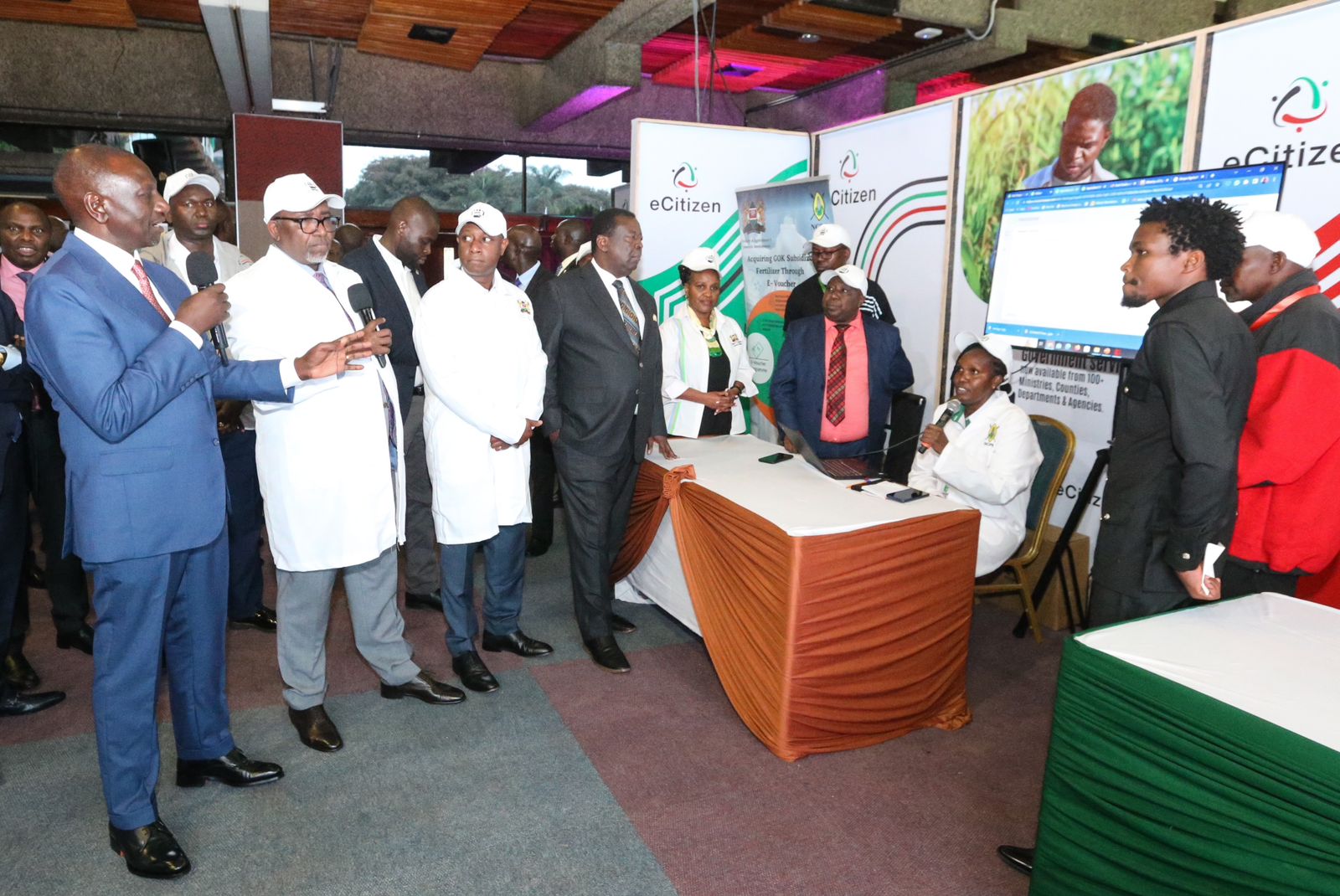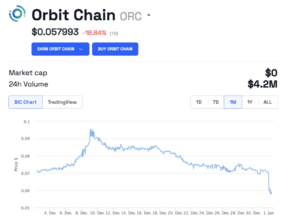
- On July 31, 2023, the ICT Minister, Mr Eliud Owalo, said that the government will issue digital identities to all citizens by February 2024
- Mr Owalo has said that those who will fail to register will not be able to access government services remotely.
- President William Ruto’s administration has already digitized over 5, 084 government services that are available online through the eCitizen portal or the Gava Mkononi platform
The Kenyan government is placing blockchain at the centre of its mode of governance. On July 31, 2023, the ICT Minister, Mr Eliud Owalo, said that the government will issue digital identities to all citizens by February 2024. This is in line with digitizing all government services, a move that intends to reduce government spending, eliminate inefficiency, make services available at ease, combat corruption and wastage, and promote inclusivity in service delivery.
The government has said that the digital registration process will be voluntary, unlike the previous digital HUDUMA NUMBER exercise that was compulsory for every citizen.
However, Mr Owalo has said that those who will fail to register will not be able to access government services remotely. To actualize the initiative, the government plans to have all state officials use digital signatures to sign off for services. This will help to deal with absenteeism as an excuse to delay the delivery of services.
“The digital identity we are talking about is not the same thing as Huduma Number, in terms of both objective and context. The Huduma Number was meant to facilitate the development of an electronic population database, “ Mr Owalo said. “We need a virtual means through which government can confirm that you are who you claim to be.
Read: Afya Rekod: Kenya launches the first ever blockchain based healthcare solution
Key services accessible through the Gava Mkononi service platform
President William Ruto’s administration has already digitized over 5, 084 government services that are available online through the eCitizen portal or the Gava Mkononi platform. Gava Mkononi is a Swahili term directly translating to “government in your hands.” The process has been successful through cooperation with the private sector, especially banks. The youth has played a vital role in the accomplishment of such a milestone. The government intends to digitize all the other government services tallying to ten thousand in the next 90 days starting mid-last month.
Among the key digitized services include Passport application, NHIF, driving license application and renewal, good conduct, business registration services, police clearance, civil registration services, and foreign nationals’ initial registration, among others.
Other key areas earmarked for digitization include but are not limited to Kenya Revenue Authority (KRA), lands, transport, education, border controls, citizen services, and the cabinet. Currently, the Cabinet conducts the meetings digitally through the already enabled ninety-two teleconferencing facilities to enable virtual meetings.
The Ruto administration has also set out Gava Express, a system identical to the current Huduma Centers that offer government services. These centres are located in urban areas, a development that Mr Ruto says excludes people living in rural areas. In contrast, the government intends to open over 300, 000 Gava Express Outlets across the country.
However, President Ruto’s ambitious plans have faced the first uphill, scammers!
Kenyan Government admits to eCitizen portal hack
On July 27, 2023, ICT CS Eliud Owalo confessed that e-government services had undergone a cyber-attack by hackers identified as Anonymous Sudan. However, Mr Owalo said that no data was lost and the government had resolved the problem.
The hackers attempt to jam the system by creating more than ordinary requests to the system. This led to an absolute slowing of the eCitizen platform. The CS, however, admitted that the government needed to invest more in cyber security and risk mitigation measures to prevent future attacks on government systems.
Government’s attempts to address internet connectivity
Access to the internet is also a major hindrance to the success of the digital economy initiative. In this regard, the government is launching a 100, 000 km of optic cable in the next five years, the CS says.
“The government will also establish and operationalize 25, 000 free WiFi hotspots across the country, first targeting itinerary trading markets and bus stations. We will also establish digital hubs in TVETS and institutions of higher learning for purposes of digital scaling.”
Read: Addressing humanity through blockchain technology
- SEO Powered Content & PR Distribution. Get Amplified Today.
- PlatoData.Network Vertical Generative Ai. Empower Yourself. Access Here.
- PlatoAiStream. Web3 Intelligence. Knowledge Amplified. Access Here.
- PlatoESG. Automotive / EVs, Carbon, CleanTech, Energy, Environment, Solar, Waste Management. Access Here.
- BlockOffsets. Modernizing Environmental Offset Ownership. Access Here.
- Source: https://web3africa.news/2023/08/02/news/kenya-to-issue-digital-ids-by-2024/
- :has
- :is
- :not
- 000
- 100
- 2023
- 2024
- 25
- 27
- 31
- a
- Able
- About
- Absolute
- access
- accessible
- across
- address
- administration
- admitted
- All
- already
- also
- ambitious
- among
- an
- and
- Application
- ARE
- areas
- AS
- At
- Attacks
- Attempts
- authority
- available
- Banks
- based
- BE
- been
- blockchain
- border
- both
- bus
- business
- but
- by
- cable
- CAN
- Centers
- centre
- centres
- citizen
- Citizens
- claim
- combat
- Conduct
- conducts
- Confirm
- context
- contrast
- controls
- cooperation
- Corruption
- country
- Creating
- Current
- Currently
- cyber
- cyber security
- data
- Database
- Days
- deal
- delay
- delivery
- Development
- digital
- Digital economy
- digital identity
- Digital IDs
- digitally
- digitization
- digitize
- digitized
- digitizing
- directly
- driving
- ease
- economy
- Education
- Electronic
- eliminate
- enable
- enabled
- especially
- establish
- EVER
- Every
- Exercise
- express
- faced
- facilitate
- facilities
- FAIL
- February
- First
- For
- foreign
- Free
- future
- good
- governance
- Government
- government spending
- hackers
- had
- Hands
- Have
- healthcare
- help
- higher
- hindrance
- However
- HTTPS
- hubs
- Humanity
- ICT
- identical
- identified
- identities
- Identity
- ids
- in
- include
- Inclusivity
- inefficiency
- initial
- Initiative
- institutions
- intends
- Internet
- Invest
- issue
- ITS
- July
- kenya
- Key
- Key Areas
- lands
- launches
- launching
- learning
- Led
- License
- Limited
- Line
- living
- located
- lost
- major
- make
- Markets
- means
- meant
- measures
- meetings
- milestone
- mitigation
- Mode
- Month
- more
- move
- mr
- Need
- needed
- next
- no
- number
- objective
- of
- off
- offer
- officials
- on
- online
- open
- or
- ordinary
- Other
- Others
- out
- Outlets
- over
- passport
- People
- placing
- plans
- platform
- plato
- Plato Data Intelligence
- PlatoData
- played
- Police
- population
- Portal
- president
- prevent
- previous
- private
- private sector
- Problem
- process
- promote
- purposes
- reduce
- regard
- register
- Registration
- requests
- resolved
- revenue
- Risk
- Role
- Rural
- Rural Areas
- Said
- same
- says
- scaling
- sector
- security
- service
- Services
- set
- sign
- Signatures
- Slowing
- Spending
- Starting
- State
- Stations
- success
- successful
- such
- Sudan
- system
- Systems
- talking
- targeting
- ten
- term
- terms
- than
- that
- The
- The Initiative
- These
- thing
- this
- those
- Through
- to
- Trading
- transport
- undergone
- unlike
- urban
- use
- Virtual
- vital
- voluntary
- was
- we
- which
- WHO
- wifi
- will
- with
- years
- You
- Your
- youth
- zephyrnet













